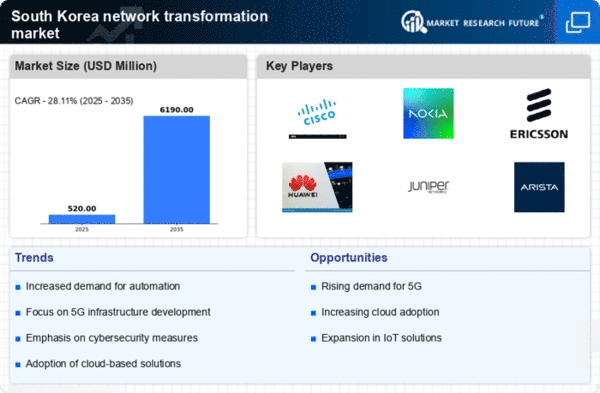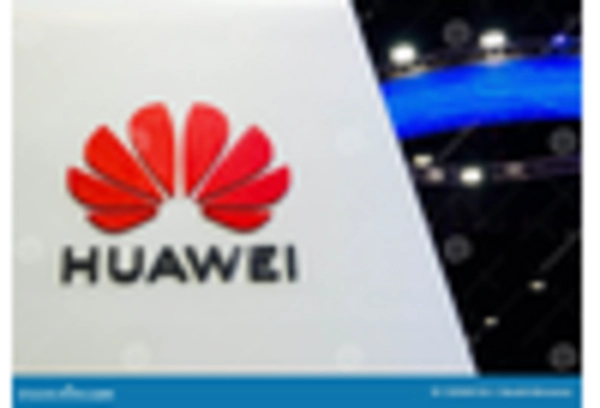Growing Cybersecurity Concerns
Cybersecurity remains a pressing concern within the network transformation market in South Korea. As organizations increasingly digitize their operations, the risk of cyber threats escalates, prompting a heightened focus on securing network infrastructures. Businesses are investing in advanced security solutions to protect sensitive data and maintain customer trust. The cybersecurity market in South Korea is projected to reach $3 billion by 2026, reflecting the urgency of addressing these challenges. This growing emphasis on cybersecurity is likely to drive innovations in network transformation, as companies seek to integrate robust security measures into their network architectures.
Government Initiatives and Support
The South Korean government plays a crucial role in the network transformation market through various initiatives aimed at enhancing digital infrastructure. Policies promoting the development of 5G networks and smart technologies are indicative of the government's commitment to fostering innovation. For instance, the government has allocated substantial funding, estimated at over $2 billion, to support the deployment of next-generation networks. This financial backing not only stimulates private sector investment but also encourages collaboration between public and private entities. As a result, the network transformation market is likely to benefit from these initiatives, leading to accelerated growth and modernization of network systems.
Emergence of Edge Computing Solutions
The rise of edge computing is significantly influencing the network transformation market in South Korea. As data generation continues to escalate, the need for processing data closer to its source becomes critical. Edge computing solutions enable organizations to reduce latency and improve response times, which is particularly beneficial for applications such as autonomous vehicles and real-time analytics. The market for edge computing is expected to expand rapidly, with projections indicating a growth rate of around 20% over the next few years. This shift towards decentralized computing architectures is likely to drive further investments in network transformation, enhancing the overall efficiency of network systems.
Increased Focus on Network Automation
In the context of the network transformation market, there is a notable shift towards network automation in South Korea. Organizations are increasingly adopting automated solutions to enhance operational efficiency and reduce human error. This trend is driven by the need for agile and responsive network management, particularly as businesses expand their digital footprints. The market for network automation tools is projected to grow by approximately 15% annually, reflecting the rising demand for streamlined processes. By leveraging automation, companies can optimize their network performance, thereby contributing to the overall growth of the network transformation market.
Rising Demand for High-Speed Connectivity
The network transformation market in South Korea is experiencing a surge in demand for high-speed connectivity. As businesses and consumers increasingly rely on digital services, the need for faster and more reliable internet connections becomes paramount. This demand is driven by the proliferation of IoT devices and the expansion of smart city initiatives, which require robust network infrastructures. According to recent data, the average internet speed in South Korea is among the highest globally, with a significant % increase in fiber-optic connections. This trend indicates that investments in network transformation are essential to meet the growing expectations for speed and reliability, thereby propelling the market forward.
















